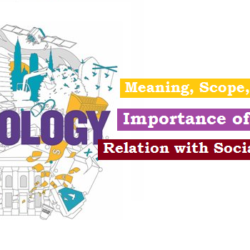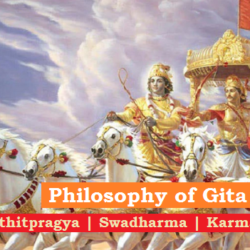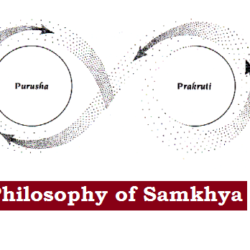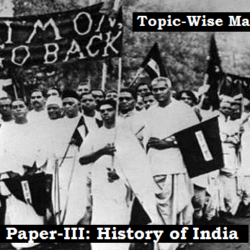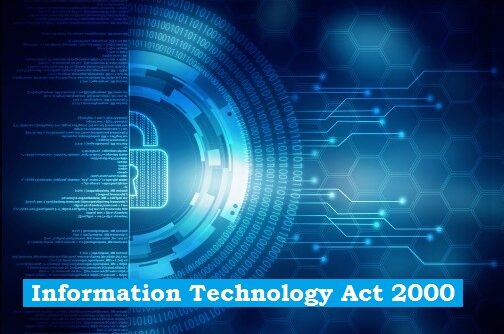
The Information Technology Act, 2000 also aims to provide for the legal recognition for transactions carried out by means of electronic data interchange and other means of electronic communication, commonly referred to as “electronic commerce”.
The said Act also proposes to amend the Indian Penal Code, 1860, the Indian Evidence Act, 1872, The Bankers’ Books Evidence Act, 1891, The Reserve Bank of India Act, 1934 to make them in tune with the provision of IT Act. This Act was amended in 2008 to enhance the scope of the Act.
| Table of contents |
| 1. Salient Features of the Act 2. Supreme Court Struck Down Section 66A 3. Important Sections of the Act 4. Questions from CGPSC Mains Examinations |
Salient Features of the Act
Electronic Governance:
- It provides for the use of Digital Signature to authenticate an electronic record.
- Deals about Electronic Governance and provides inter alia amongst others for any law to be made available in an electronic form; and accessible so as to be usable for a subsequent reference.
- It also provides for Regulation of Certifying Authorities and various provisions for the issue of license to issue Digital Signature Certificates.
Electronic Commerce#:
- It provides legal recognitions to electronic transactions carried out by means of electronic data interchange.
- Thereby legalizes alternatives to paper-based methods of communication and storage of information and to facilitate the filing of documents of government agencies.
Monitoring of Information#:
- It gives power to issue directions for interception or monitoring or decryption of any information through any computer source. (Section 69)
- It also authorizes to monitor and collect traffic data or information through any computer resource for Cyber security. (Section 69B)
Cyber Crime and Data Privacy:#
- It has many provisions for activities like hacking, tempering, sending offensive messages, violating personal privacy, etc. For example,
- Sending offensive messages through communication service, etc) has punishment of Imprisonment extended up to 3 years & fine. (Section 66A)*
- Cyber terrorism has punishment of Imprisonment for life. (Section 66F)
- Prohibits publishing or transmitting obscene material (Section 67)
- The amended Act introduced two Sections addressing Data Protection, Section 43A (Compensation for failure to protect data), and Section 72A (Punishment for disclosure of information in breach of lawful contract.
- Section 67C refers to the Preservation and Retention of Information by Intermediaries.
Adjudication and Penalties:
- It has provisions for penalties and adjudication for various offences. The penalties compensation not exceeding Rs.1 crore to affected persons.
- It provides for the appointment of any officers not below the rank of a Director to the Government of India or an equivalent officer of state government as an Adjudicating Officer who shall adjudicate whether any person has made a contravention of any of the provisions of the said Act, or rules framed there under. The said Adjudicating Officer has been given the powers of a Civil Court.
- Certain offences shall be investigated only by a Police Officer not below the rank of the Police Inspector# (and not Deputy Superintendent of Police). These offences include tampering with computer source documents, publishing of information, which is obscene in electronic form, and hacking.
- It also talks of the establishment of the Cyber Regulations Appellate Tribunal, which shall be an appellate body where appeals against the orders passed by the Adjudicating Officers, shall be preferred.
Advisory Committee:
- The Act also provides for the constitution of the Cyber Regulations Advisory Committee, which shall advice the government as regards any rules, or for any other purpose connected with the said act.
#Amended in 2008 Amendment Act
*Held unconstitutional by the Supreme Courtin 2015
| Supreme Court Struck Down Section 66A of IT Act in 2015 |
| It had provision for punishment for online offence like sending offensive messages or posting content deemed to be “allegedly objectionable”. The SC held Section 66A unconstitutional in its entirety to struck it down. SC held that 1. SC also clarifies the liberty of thought and expression as the three forms of Discussion, Advocacy and Incitement. 2. The liberty of thought and expression rights to be protected no matter how unpopular for a particular cause and may be curbed only when it reaches to the level of incitement. 3. Every offence punishable under this Act is cognizable (arrest without a warrant) and every such offence may be tried summarily (speedily), except where it is punishable with imprisonment for a minimum term exceeding three months. |
Important Sections of the Act
| Sections | Provisions |
| Section 4 | Legal recognition of electronic records |
| Section 5 | Legal recognition of electronic signature |
| Section 43 | Penalty and compensation for damage to computer, computer system, etc |
| Section 67 | Punishment for publishing or transmitting obscene material in electronic form |
| Section 69 | Power to issue directions for interception or monitoring or decryption of any information through any computer resource |
| Section 70B | Indian Computer Emergency Response Team (ICERT) to serve as national agency for incident response. |
| Section 80 | Power of police officer and other officers to enter, search, etc. |
| Questions from CGPSC Mains Examinations |
| 2022 Discuss the ‘Electronic Governance’ under the Information Technology Act 2000. (8 marks) सूचना प्रौद्योगिकी अधिनियम 2000 के अंतर्गत ‘इलेक्ट्रोनिक गवर्नेंस’ को बताइये। (8 अंक) |
| 2021 State the main objectives of the Information Technology Act 2000. (02 marks) सूचना प्रौद्योगिकी अधिनियम 2000 के मुख्य उद्देश्य बताइये। (02 अंक) |

 Home
Home Syllabus
Syllabus Contact Us
Contact Us




